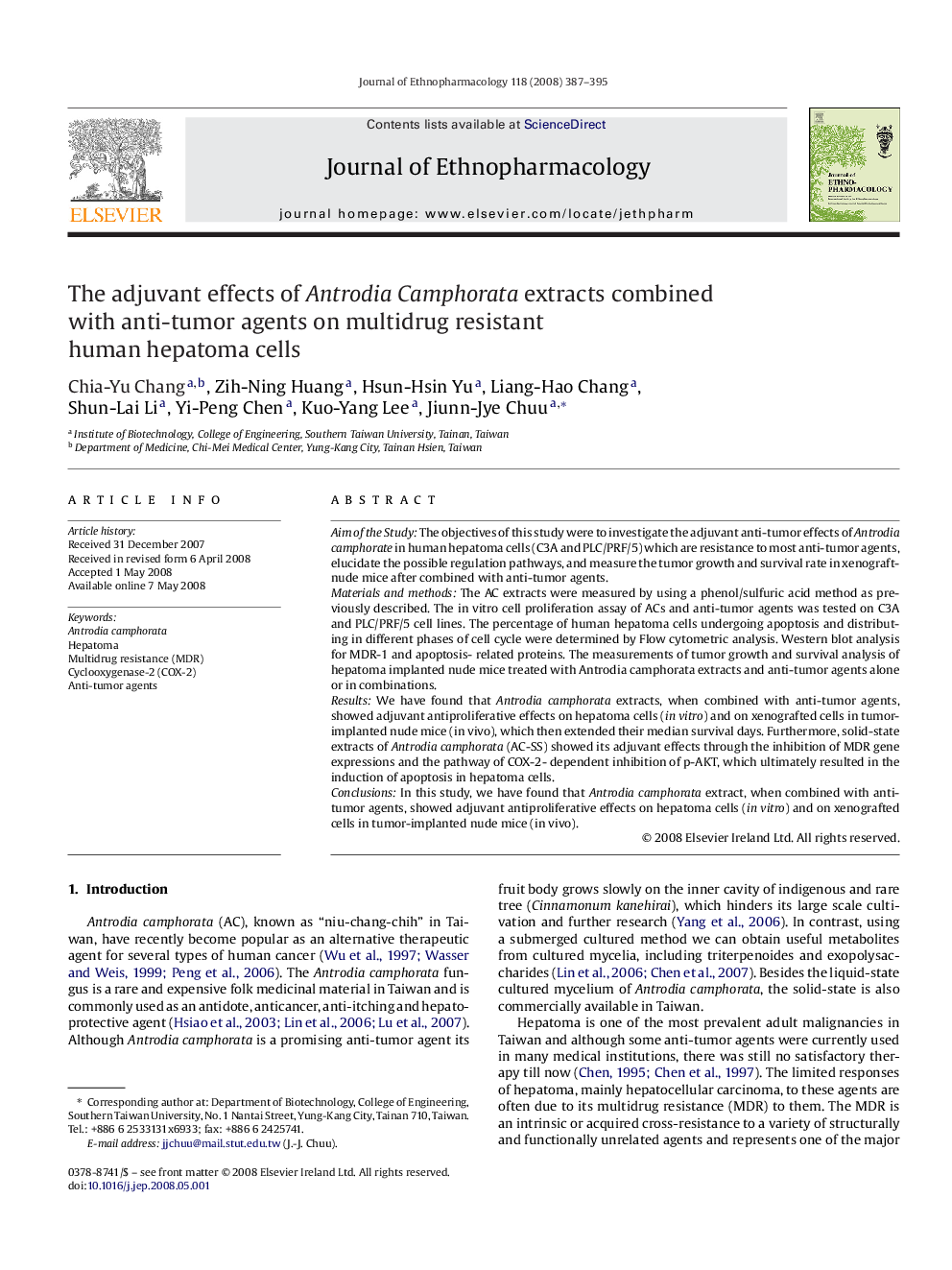| Article ID | Journal | Published Year | Pages | File Type |
|---|---|---|---|---|
| 2546761 | Journal of Ethnopharmacology | 2008 | 9 Pages |
Aim of the StudyThe objectives of this study were to investigate the adjuvant anti-tumor effects of Antrodia camphorate in human hepatoma cells (C3A and PLC/PRF/5) which are resistance to most anti-tumor agents, elucidate the possible regulation pathways, and measure the tumor growth and survival rate in xenograft-nude mice after combined with anti-tumor agents.Materials and methodsThe AC extracts were measured by using a phenol/sulfuric acid method as previously described. The in vitro cell proliferation assay of ACs and anti-tumor agents was tested on C3A and PLC/PRF/5 cell lines. The percentage of human hepatoma cells undergoing apoptosis and distributing in different phases of cell cycle were determined by Flow cytometric analysis. Western blot analysis for MDR-1 and apoptosis- related proteins. The measurements of tumor growth and survival analysis of hepatoma implanted nude mice treated with Antrodia camphorata extracts and anti-tumor agents alone or in combinations.ResultsWe have found that Antrodia camphorata extracts, when combined with anti-tumor agents, showed adjuvant antiproliferative effects on hepatoma cells (in vitro) and on xenografted cells in tumor-implanted nude mice (in vivo), which then extended their median survival days. Furthermore, solid-state extracts of Antrodia camphorata (AC-SS) showed its adjuvant effects through the inhibition of MDR gene expressions and the pathway of COX-2- dependent inhibition of p-AKT, which ultimately resulted in the induction of apoptosis in hepatoma cells.ConclusionsIn this study, we have found that Antrodia camphorata extract, when combined with anti-tumor agents, showed adjuvant antiproliferative effects on hepatoma cells (in vitro) and on xenografted cells in tumor-implanted nude mice (in vivo).
